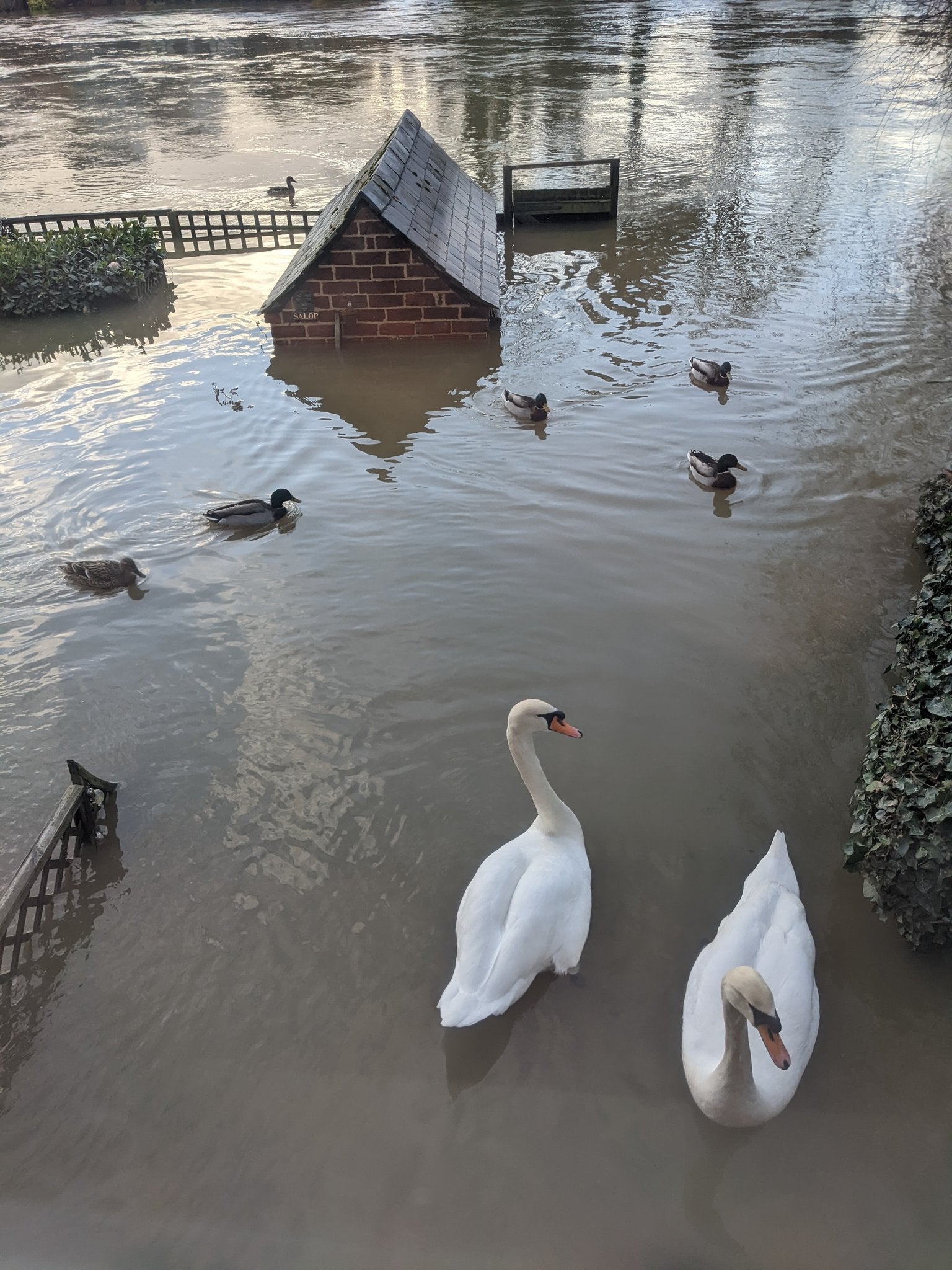Immediate action needed to halt Severn flooding, say residents
Chris Allen, who lives in Shrewsbury, said he narrowly avoided “disaster” this week – but is worried floods could worsen in the future.

Your support helps us to tell the story
From reproductive rights to climate change to Big Tech, The Independent is on the ground when the story is developing. Whether it's investigating the financials of Elon Musk's pro-Trump PAC or producing our latest documentary, 'The A Word', which shines a light on the American women fighting for reproductive rights, we know how important it is to parse out the facts from the messaging.
At such a critical moment in US history, we need reporters on the ground. Your donation allows us to keep sending journalists to speak to both sides of the story.
The Independent is trusted by Americans across the entire political spectrum. And unlike many other quality news outlets, we choose not to lock Americans out of our reporting and analysis with paywalls. We believe quality journalism should be available to everyone, paid for by those who can afford it.
Your support makes all the difference.Frustrated Shrewsbury residents have called for immediate action after suffering from flooding three years in a row.
The Shropshire town has been among the worst-affected areas of the UK as flooding hit several regions in the wake of storms Dudley, Eunice and Franklin.
Among those to experience it was Chris Allen, whose 700-year-old house and its garden beside the River Severn were so badly affected he was trapped inside all day on Tuesday.
“The river was literally flowing all the way around the house,” the 53-year-old project manager told the PA news agency.
“It was too dangerous to leave the house – it was probably about seven foot at the back of the house and two or three foot at the front.”
Mr Allen said he has lived in the listed property for 18 years, and the last three years have been the worst flooding he has experienced.
“They say this kind of level that we’ve had this week is a one-in-100-years sort of flood but it’s been three years running now,” he said.
“So obviously something’s changed, something’s different.
“If it’s one in 100 years, you can appreciate them not paying much attention to it in terms of defences, but it’s a regular occurrence.”
Mr Allen said flood defences are needed “now”.
“I’m no expert but it seems to me something needs to be done further upstream in Wales, whether it’s the wetland flooding, whatever, to try and regulate the flow of the water, which would benefit everybody,” he said.
“But something has to be done now.”
Mr Allen said he was fortunate the floodwater did not hit the levels forecast.
The water only reached the lowest level of his house – where, thanks to past experiences, he keeps little that can be damaged – but he said it “would have been a disaster” for him if the flooding had been has severe as was feared.
It leaves him worried about might happen in the future.
“We’re almost going into an unknown period where it could easily get worse,” he said.
“Further upstream they had record levels reported, and if we do have a new record in Shrewsbury then it would be awful.”
Sarah Jackaman, who lives in Montford Bridge just outside Shrewsbury, has organised her whole house to minimise the impact of the now regular flooding.
“All of downstairs is terracotta tiles, there’s just plaster on the walls – flood-proof plaster and paint – all the electric sockets are up to a metre height, and we don’t have a fitted kitchen as such,” the 48-year-old told PA.
She said in the 18 years she has lived there, she has experienced flooding approximately 15 times, and used to see it as a fact of life.
“But now three consecutive years each reaching peak levels, we’re now really asking questions,” she said.
She said much has been promised to improve the situation, but so far little has been done.
The Severn Valley Water Management Scheme, set up to try to tackle the issue, is due to produce an overview of possible measures early this year.
In the meantime, Ms Jackaman, a food technologist, said the reservoirs upstream in Wales need to be managed differently.
“The short term is just better active engaged management of the reservoirs and dams up in the Welsh hills,” she said.
“Obviously they hold this water and it’s a managed system where the dams can be emptied to let any flood water out.
“And it’s that positive management of those dams in the wintertime to make sure that they don’t overflow and cause the catastrophic flooding.”